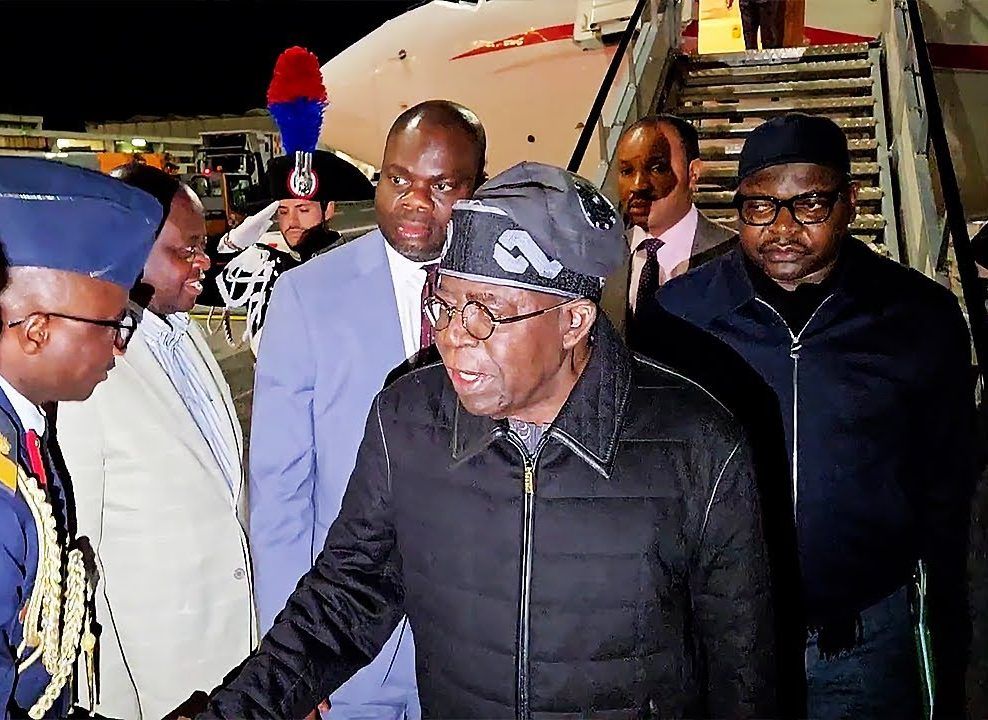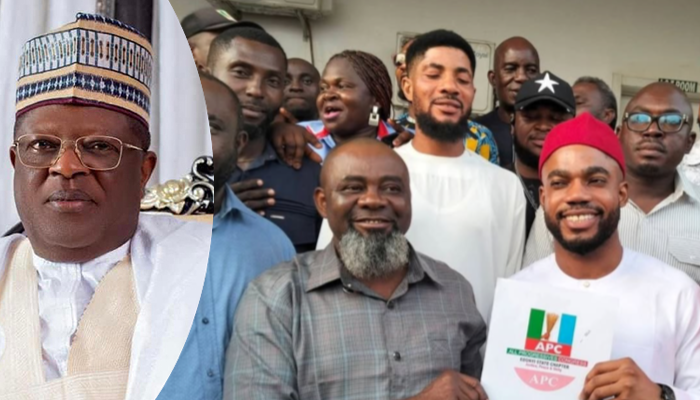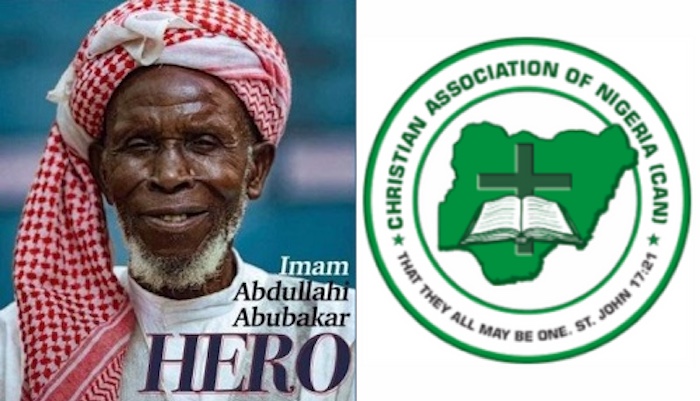
President Bola Ahmed Tinubu has returned to Abuja after participating in the Aqaba Process Heads of State and Government Meeting held in Rome, Italy, where world leaders convened to strengthen global cooperation against terrorism and violent extremism.
The Aqaba Process, a strategic counterterrorism initiative launched in 2015 by His Majesty King Abdullah II of Jordan, is co-chaired by Jordan and Italy. It serves as a global platform for fostering coordination, intelligence sharing, and operational synergy in the fight against extremist threats.
This year’s Rome edition — hosted at the National Gallery of Modern and Contemporary Art on Wednesday, October 15 — focused on enhancing regional and international collaboration, with a special emphasis on the evolving security challenges in West Africa.
Among the prominent attendees were King Abdullah II of Jordan, Italian Prime Minister Giorgia Meloni, and the Presidents of Nigeria, Chad, Paraguay, Sierra Leone, and Togo.
Also in attendance were Azouz Nasri, President of Algeria’s Upper House; high-level delegations from Côte d’Ivoire, Kazakhstan, Mauritania, Senegal, and Uzbekistan; as well as special envoys, diplomats, and security experts.
The high-stakes discussions were held behind closed doors, underscoring the sensitivity and strategic nature of the deliberations.
According to a statement by Bayo Onanuga, Special Adviser to the President on Information and Strategy, President Tinubu also engaged in several bilateral meetings on the sidelines of the summit.
He met with Italian Prime Minister Giorgia Meloni to explore avenues for deepening cooperation on migration management, energy, and counterterrorism initiatives.
The President also conferred with Massad Boulos, Senior Adviser to former U.S. President Donald Trump on Arab and African Affairs, and with Cardinal Pietro Parolin, the Vatican’s Secretary of State, on promoting religious harmony and interfaith understanding in Nigeria.
During his discussions with the Vatican official, President Tinubu addressed the issue of disinformation campaigns that misrepresent Nigeria as hostile to religious diversity, reaffirming his administration’s commitment to unity and peaceful coexistence.
Since its inception, the Aqaba Process has convened 33 meetings worldwide, ranging from high-level political dialogues to technical expert sessions. Its framework is built on three pillars — prevention, coordination, and bridging operational gaps — aimed at enhancing collective resilience against terrorism.
President Tinubu’s participation reaffirmed Nigeria’s active role in global counterterrorism cooperation and its commitment to safeguarding peace and stability both at home and across Africa.


